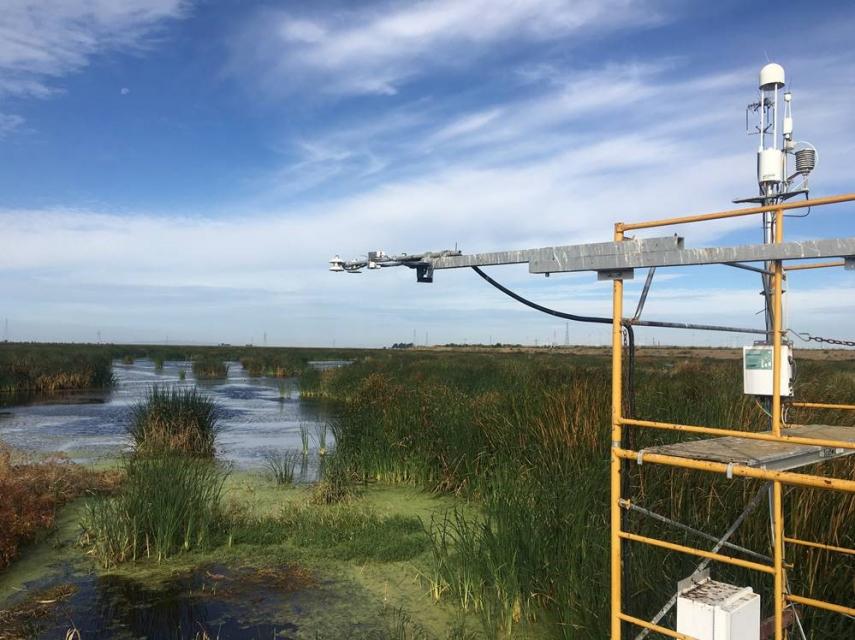Latest Western Water Examines Plan To Use Carbon Credits To Aid Delta Islands and Protect California’s Vital Water Hub
Article explores how carbon credits could offer incentives to convert Delta islands to wetlands or rice to halt subsidence and potentially raise island elevations
 The islands of the western
Sacramento-San Joaquin Delta release tons of carbon dioxide — a
greenhouse gas — into the atmosphere as the rich peat soil that
attracted generations of farmers dries out and decays.
The islands of the western
Sacramento-San Joaquin Delta release tons of carbon dioxide — a
greenhouse gas — into the atmosphere as the rich peat soil that
attracted generations of farmers dries out and decays.
An ambitious plan now in the works could halt the decay, sequester the carbon and — just as important — help protect California’s vital water conveyance system by offering farmers and landowners an incentive to change how they use their land. The latest article in Western Water explores how the plan would work, looks at the concerns of some in agriculture, and talks with one farmer who’s willing to give it a try.
Western Water, the Foundation’s flagship publication, has been providing in-depth coverage of water resource issues in California and the West since 1977 — first as a print magazine, and now published entirely online. You can sign up here to be alerted via email when new articles are published.
The Foundation’s journalists — Jenn Bowles, who serves as executive editor of Western Water; editor Doug Beeman; and chief writer Gary Pitzer — bring deep experience covering natural resources in California and the West.
In addition, veteran journalist Matt Weiser manages the Foundation’s daily Aquafornia news service, which provides you with the top water stories delivered to your inbox before 9 a.m. each weekday morning. You can sign up for the morning email and Western Water here.








